The Bedwetting Doctor's Tips & Advice Blog
What settings should I use on my bedwetting alarm?
The huge range of models of bedwetting alarms available mean that there are many different options for different settings. What are the key features of these different settings and how can they help to achieve dry nights?
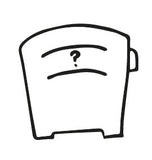
How to support your child on their way to dry nights
Every parent wants the best for their child, so it can be difficult to watch your child suffer with bedwetting...

When should I stop using the bedwetting alarm?
All children take a different length of time to respond to the bedwetting alarm treatment. Some children see results after activating the alarm just a handful of times, whilst others may take a few months to learn to control their bladder overnight.

Daytime and Night-Time Wetting
Night-time bedwetting (nocturnal enuresis) can occur with or without daytime wetting (diurnal enuresis). The processes and treatment involved in these two types of wetting can differ.

Q&A #4
In our latest Bedwetting Q&A, we answer these 2 questions from parents:
Q: I’m getting mixed messages – should I increase or decrease how much my son drinks?
Q: My son turns his alarm off, what can I do?

Auditory Accommodation
You may have seen the term “auditory accommodation” used in the descriptions of some bedwetting alarms. What is it and what can be done about it?

3 Ways To Succeed With A Bedwetting Alarm
Alarms are the most successful long-term cure for bedwetting. To ensure success with the bedwetting alarm, these are some of our top tips...

Encouraging your child to wear a bedwetting alarm
Alarm treatment is recommended for children aged 5 if they want to become dry. If they seem disinterested at this age, it may be better to wait a little while until they feel ready to become dry. Once a child reaches the age of 7, if they are not regularly achieving dry nights then guidelines state that they should certainly participate in bedwetting treatment...

Should I choose a wearable or wireless alarm?
To maximise a bedwetting alarm’s effectiveness, it is important to choose the right alarm to ensure that it suits each individual child. Our alarms fall into two broad categories: wearable alarms and wireless alarms. When choosing which alarm would suit your child best, this is the first decision to make.
READ MOREDo children wake up to standard alarm sounds?
Recent research has shown that 80% of children sleep right through typical loud smoke alarms. What does this mean for bedwetting alarms?

How successful are bedwetting alarms?
Bedwetting alarms are recommended by the National Institute for Health and Care Excellence (NICE) as the first-line treatment for bedwetting in children aged 5-19. But why are alarms considered to be the best bedwetting treatment for children? READ MORE
READ MORE
How to ensure long-term success with a bedwetting alarm
Bedwetting alarms have consistently been shown to be the best treatment for achieving a long term cure for bedwetting, with the majority of children who use alarm becoming permanently dry. We recommend taking a further step in the bedwetting alarm treatment to ensure long-term dryness...

Using a bedwetting alarm for more than 1 child
All Malem alarms stocked by The Bedwetting Doctor have been especially designed to allow hygienic use between multiple children....

Why we recommend not wearing pull-ups when using a bedwetting alarm
You may have noticed us mention that we don’t recommend wearing pull-ups during the bedwetting alarm treatment. Why?…

My child is a deep sleeper
Parents are often concerned that their child cannot be cured of their bedwetting because they are a deep sleeper. This is not the case – with the use of the right alarm and by following The Bedwetting Doctor’s top tips, deep sleepers can become dry at night in the same way as any other child...
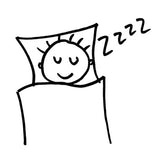
Bedwetting Alarm Olympics
This is the Bedwetting Alarm Olympics! The world's best bedwetting alarms are going head to head in a range of events, testing their features to their limits! Which alarms will win gold.....?
How to stay motivated on the way to becoming dry at night
Here are some of our top tips for staying motivated during the bedwetting alarm treatment, because persisting will give your child the best chance of becoming permanently dry at night…

Starting to use a bedwetting alarm: top 5 tips
Here's our guide to getting started with the bedwetting alarm treatment...

The different ways an alarm can wake up a bedwetting child
There are a wide range of bedwetting alarms available. The most basic models alert by playing just a single alarm sound. More sophisticated designs offer variable alarm tones, different sensory stimuli, like vibration, and even options to record personalised messages. But what’s the advantage to these additional features?

Making Progress With A Progress Chart
Progress charts are an important part of the bedwetting alarm treatment, helping your child to reach dry nights as quickly as possible. But how should they be used and why are they important?
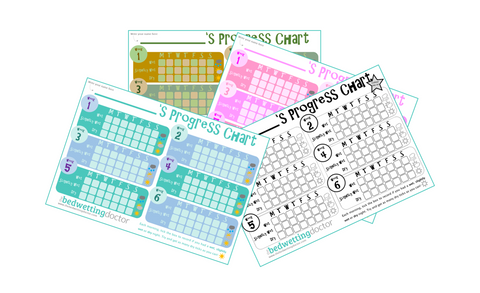
Does my child need a bedwetting alarm?
Are you wondering if your child needs a bedwetting alarm? Here we cover some of the key points to think about when considering whether a bedwetting alarm is right for your child.
6 Simple Steps To Take When The Bedwetting Alarm Sounds
We realise that you might be a bit bleary eyed when your child’s bedwetting alarm goes off in the middle of the night. Here we highlight 6 simple steps to take when the alarm sounds. This should help to make it as easy as possible for you and your child to get the most out of the bedwetting alarm treatment and achieve dry nights as quickly as possible!
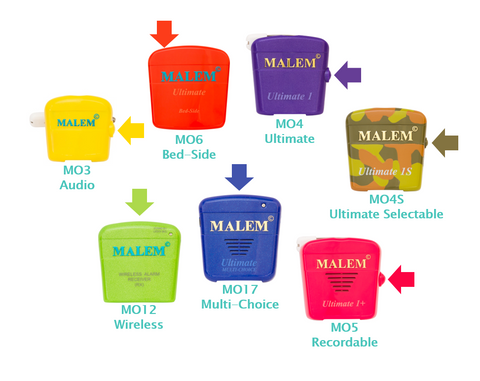
What sensor should my child use?
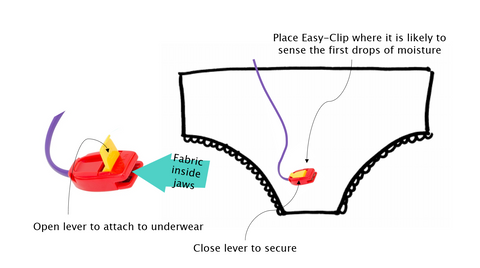
A bedwetting alarm system consists of 2 components: the alarm and the sensor. The sensor detects the first drop of urine and the alarm alerts your child to wake up when this happens. We’ve previously discussed the key things to consider when choosing a bedwetting alarm but it is also important to make sure that the sensor you choose is the right one for your child.......
READ MOREHow does an alarm cure bedwetting?

All children start off as bedwetters. By around the age of 5, most children have developed the ability to control their bladders whilst they are asleep, enabling them to stay dry until morning. However, for some children this natural link between the brain and the bladder can take a little longer to develop. A bedwetting alarm works by speeding up this brain-bladder link in children aged 5+ that are still wetting at night......
READ MORE- Page 1 of 2
- Next


